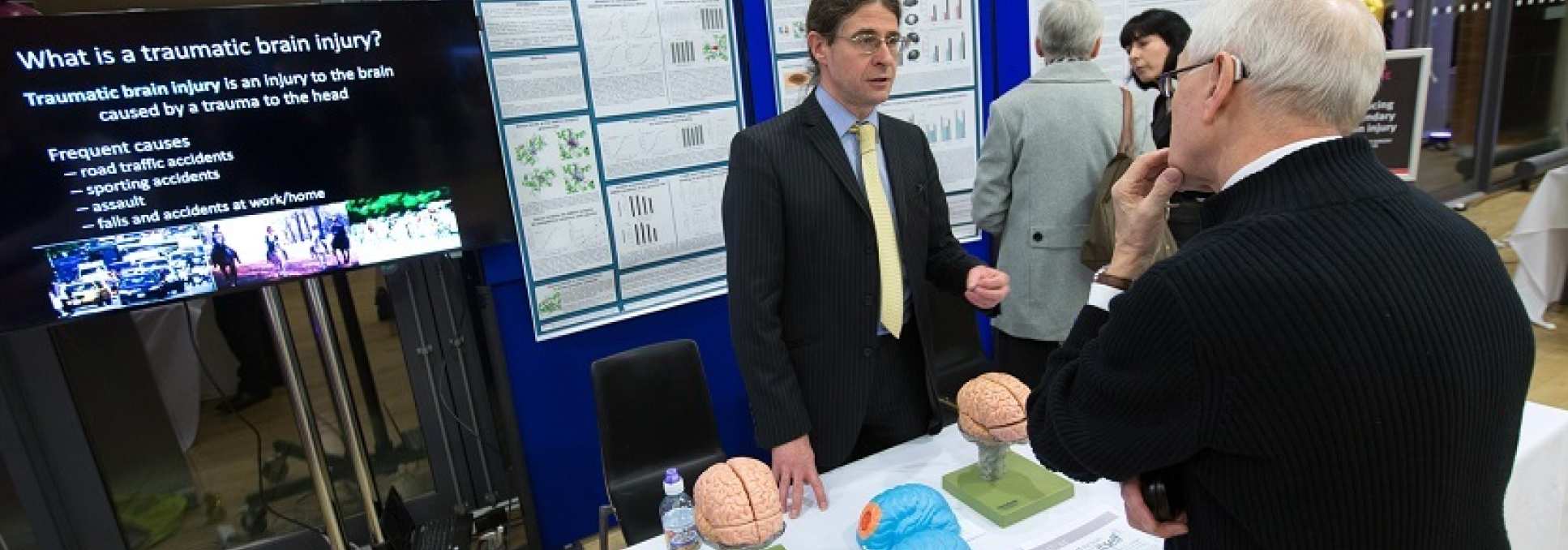
Contact us
For any enquiries related to Brain and neuroprotection, please contact
Dr Robert Dickinson
r.dickinson@imperial.ac.uk
+44 (0)20 7594 7633
Overview
We are interested in mechanisms of anaesthesia and neuroprotection (protection against brain injuries such as stroke or traumatic brain injury). The identification of the molecular targets of certain anaesthetics such as xenon has led to the idea of using these anaesthetics as treatments to prevent brain damage in conditions such as neonatal hypoxia/ischemia and traumatic brain injury.
We use a variety of approaches to study the molecular actions of anaesthetics and neuroprotectants, including patch-clamp electrophysiology and site-directed mutagenesis. We also use a variety of in vitro and in vivo models of acquired brain injury in order to evaluate the efficacy and mechanism of novel treatments for conditions such as stroke and traumatic brain injury.
Summary of current research
- Understanding the mechanisms of action of anaesthetics & neuroprotectants
- Understanding the pathophysiological mechanisms underlying different types of acquired brain injuries
- Evaluating the efficacy of new treatments for acquired brain injury (eg carbon monoxide exposure, blunt trauma and blast-traumatic brain injury)
- Identifying clinically relevant biomarkers for acquired brain injury
Key members within Brain and neuroprotection
Dr Robert Dickinson
/prod01/channel_3/media/migration/faculty-of-medicine/Dickinson--tojpeg_1470837181497_x4.jpg)
Dr Robert Dickinson
Senior Lecturer
Professor Daqing Ma
/prod01/channel_3/media/migration/faculty-of-medicine/Ma--tojpeg_1470835802848_x4.jpg)
Professor Daqing Ma
Professor of Anaesthesia
Dr Marcela Vizcaychipi
/prod01/channel_3/media/migration/faculty-of-medicine/pwpimage-html--tojpeg_1478188313182_x4.jpg)
Dr Marcela Vizcaychipi
Honorary Clinical Senior Lecturer
Funders, collaborators and PPE
Imperial College:
- Professor Nick Franks (Life Sciences)
- Professor Steve Gentleman (Medicine)
- Dr Paul Chadderton (Bioengineering)
- Dr Andrei Kozlov (Bioengineering)
External:
- Dr Marco Gruss (Hanau)
- Dr Konstantin Radyushkin (Mainz)
- Dr Serge Thal (Mainz)
We have participated in:
- "Science Uncovered" at London's Natural History Museum in 2012 and 2013. You can see photos of our stand and read a news report of the event
- the Wonder Festival of Art & Science of the Brain at London's Barbican Centre in 2013 where we showcased our neuroprotection work.
- the Imperial Festival in May 2013, 2014 and 2016
- the Imperial Fringe series event that focused on how and why scientists and doctors use animals in research
We also carry out outreach activities with Gillespie Primary School in north London with their innovative Lab13 Science Lab. I was Scientific Advisor to a Gillespie Lab13 research project on Manuka Honey, which was presented by the Gillespie Primary pupils at the 2015 Cheltenham Science Festival and featured in The Times and the Daily Mail.